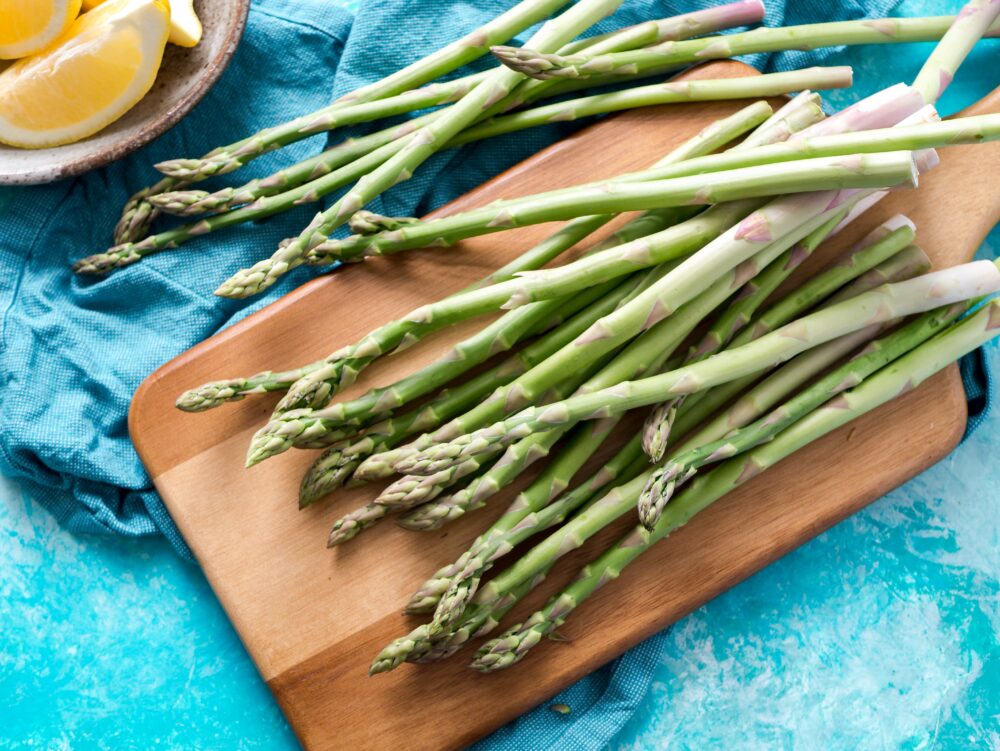Asparagus Nutrition

On paper, asparagus is a nutritional powerhouse. Calorically speaking, it’s mostly carbohydrates with a small but not insignificant amount of protein: 2.4 grams of protein per 100-gram serving of asparagus. That same serving also delivers two grams of fiber, which sounds a bit low since asparagus is sometimes extremely chewy (especially if you don’t cook it or neglect to cut off the tough, fibrous stems).
Asparagus is also an excellent source of both fat-soluble and water-soluble vitamins, especially vitamins A, C, E, K, and most of the B vitamins. Plus, it’s no slouch when it comes to minerals, including copper, manganese, selenium, and potassium. Most of the nutrients in asparagus increase slightly in concentration when it’s cooked rather than eaten raw, although you can get a heap of benefits either way.
Asparagus also delivers “specialty nutrients” that pack huge nutritional punches, including potent antioxidants like lutein and zeaxanthin, which are important to eye health; glutathione, which is a multi-disease-fighting powerhouse; and quercetin, which has anti-inflammatory properties.
And, as we’ve seen (or smelled), asparagus also contains the sulfur-containing compound asparagusic acid that makes your pee smell weird. While the smell of sulfur may conjure mental images of fire and brimstone, its presence in vegetables generally signals nutritional superpowers. Other veggies high in sulfur include allium (such as onions and garlic) and cruciferous (such as cabbage, broccoli, and kale) vegetables, two of the top superfood categories.
These sulfur-rich foods play a significant role in preventing various diseases, including chronic inflammation, cancer, diabetes, obesity, and neural dysfunction. They’re also being studied for their ability to enhance the effects of chemotherapy and support neurological function.
And we’re just scratching the surface in understanding asparagus’ rich cocktail of phytonutrients and their ability to promote health and fight disease across a wide spectrum of organs, systems, and conditions. Purple asparagus, in particular, deserves a Lifetime Achievement Award for its high concentrations of anthocyanins.
( Exerpt taken from the Food Revolution Network)
